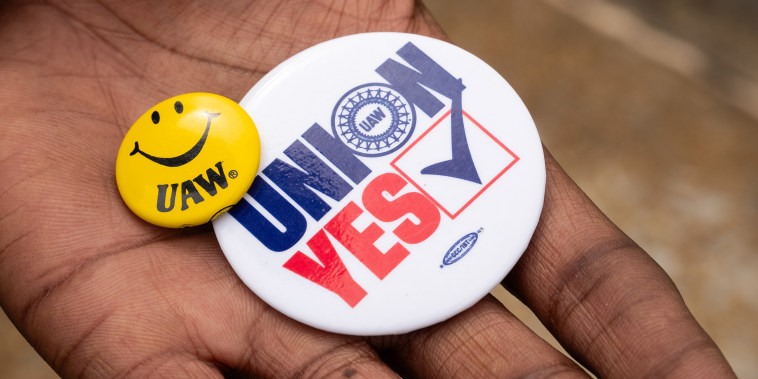The recent decision by Volkswagen workers in Tennessee to join the United Auto Workers (UAW) union marks a significant milestone in the history of labor relations in the United States. This development has far-reaching implications not only for the workers involved but also for the broader landscape of labor unions and corporate dynamics in the country. The decision represents a victory for the UAW, which has been striving to gain a foothold in foreign-owned auto plants in the South, where unionization efforts have historically faced significant challenges.
One of the key aspects of this historic win is the long-standing struggle for workers’ rights and fair treatment in the auto industry. The UAW has a strong history of advocating for better wages, benefits, and working conditions for its members, and the decision by Volkswagen workers in Tennessee to join the union reflects a growing recognition of the importance of collective bargaining in securing these rights. By joining the UAW, these workers have demonstrated their commitment to standing together to demand fair treatment and respect in the workplace.
The decision also underscores the shifting dynamics of labor relations in the United States, particularly in the context of foreign-owned companies operating in the country. As globalization has transformed the landscape of the auto industry, foreign automakers have increasingly set up production facilities in the U.S., creating new challenges and opportunities for workers seeking to unionize. The successful unionization of Volkswagen workers in Tennessee sends a strong signal that workers in foreign-owned plants are willing to assert their rights and demand a seat at the table in shaping their working conditions.
Moreover, the decision to join the UAW reflects a broader trend of increasing activism and solidarity among workers in various industries across the country. In recent years, there has been a resurgence of labor organizing and collective action, as workers have taken a stand against low wages, precarious employment, and hostile working environments. The successful unionization of Volkswagen workers in Tennessee is a testament to the power of collective action and solidarity in advancing the interests of workers and pushing back against corporate interests.
Looking ahead, the decision by Volkswagen workers in Tennessee to join the UAW is likely to have ripple effects across the auto industry and beyond. It could inspire other workers in foreign-owned plants to consider unionization as a means of securing better wages and working conditions. It may also prompt a broader conversation about the role of unions in protecting workers’ rights in an era of increasing automation and economic uncertainty. Ultimately, the historic win for the UAW in Tennessee serves as a reminder of the enduring importance of collective bargaining in ensuring fair treatment and respect for workers in the modern economy.
